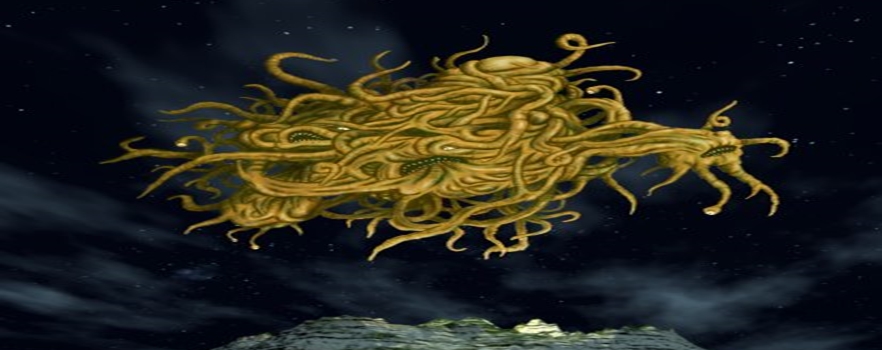Color Out of Space: Screams and SPOILERS

Color Out of Space has been on my radar for a long time. H.P. Lovecraft. Nicolas Cage. Cosmic horror and vigorous over-emoting. What’s not to love?
It turns out, more than I hoped there would be.
***
Directed and co-written by Richard Stanley, Color Out of Space opens beautifully, with haunting vistas that set a mood of wildness and isolation.This is almost immediately shattered by a main character showing up wearing a Miskatonic University tee shirt. The film is littered with many other similar, unnecessary call-outs to HPL– a paperback copy of The Necronomicon being the most egregious–that strike me as attempts to build a credibility the movie doesn’t need. Stanley is able to evoke the blind horror of the utterly unknown and build to a stunning conclusion without having to put his inspirations on display.
For all its flaws, Color Out of Space is a remarkably well-realized vision of Lovecraft’s story. Stanley faithfully captures the essential ideas behind it. Weirdness bleeds from almost every scene. The inexplicable alien menace grows until it overwhelms. There is no happy ending–especially not for the characters who survive.
***
Those poor characters.
Because of the script’s weaknesses and the direction’s inconsistency, the characters are almost afterthoughts to the action. Backstory details are dropped in without any context or relevance. Family interactions become non-sequiturs as parents and children talk past each other or shift emotional gears midstream without warning or provocation. There is an awful shortsightedness to how the characters are presented–there is no sense of them being a family, or of them even existing in any meaningful way.
I blame this on the direction, simply because of the competency of the cast. Good actors can transcend a limp script, but not indecisive, inconsistent direction.
Nicolas Cage’s Nathan Gardner is all over the map–angsty, maniacal, befuddled. Perhaps if Cage had been allowed to take it all the way over the top he would have been more convincing.
As his wife, Theresa, Joely Richardson seems thoroughly disconnected. I don’t think she knows what she is supposed to do with her character.
Madeleine Arthur as their daughter Lavinia gives a genuinely strong performance. Her witchy power is diminished by weak, often inane dialogue. Elliot Knight as the narrator and sort-of-hero Ward Phillips also gives a comparatively steady performance despite the uneven demands made of his character.
Unfortunately, Brendan Meyer as the family’s older son, Benny, is saddled with “stoner” as his defining trait and doesn’t really move past it. Speaking of stoners, Tommy Chong as the mystical squatter Ezra iplays the same character he usually plays–but among the general chaos he is at least believable.
Rounding out the main cast we have Q’orianka Kilcher appearing briefly as Mayor Tooma, an otherwise talented actress given a pointless role. She at least fared better than poor Julian Hilliard, who as Jack existed merely as a plot device.
***
For me, Color Out of Space produces a weird cognitive dissonance that has nothing to do with the source material. While I can’t say I truly liked it, I do recommend it.
As a comeback film for Richard Stanley, Color Out of Space does what it needs to do. His vision is gorgeous and clear, and his interpretation of the source material captures its bleak and dreadful feel. Despite awkward performances that made my skin crawl for all the wrong reasons, when it came time to bring the unspeakable alien horror crashing down the movie absolutely nails it. The ending is as overwhelming and hopeless as being swept out to sea.
As many times as I have read Lovecraft’s story, I never saw it. Not like this.
It seems Stanley did.